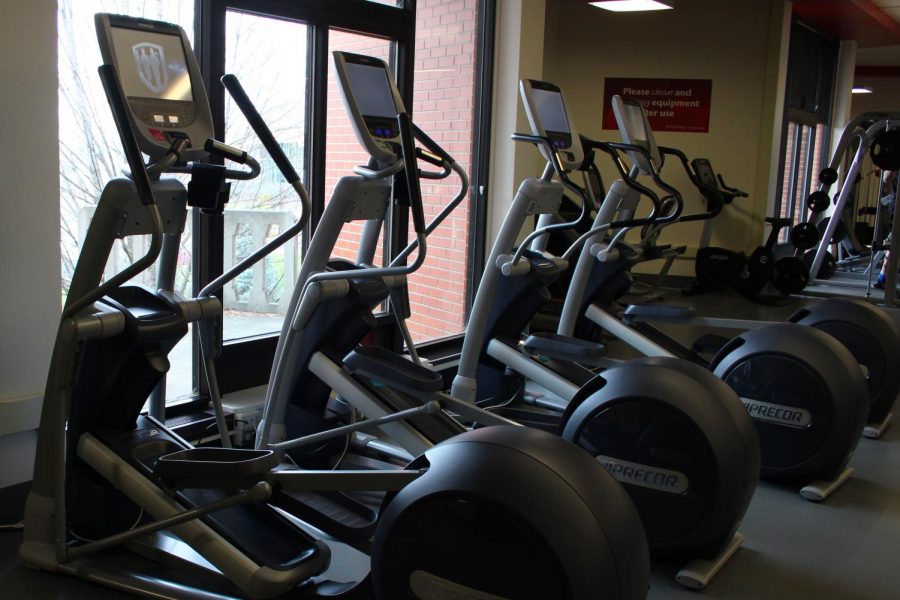People should rely less on their resolutions
Too much pressure is put on people to change their lives at the start of the year, should instead plan in advance
KIERSTEN BUTTERWORTH | EVERGREEN PHOTO ILLUSTRATION
There’ll be plenty of opportunities to practice physical fitness, new diets or quit old habits in 2019, whether you’re resolved now or not.
January 16, 2019
The new year creates an opportunity for self-examination and growth. For many this means creating New Year’s resolutions. The spirit of self-improvement is celebrated, but the results show the lofty goals people set for themselves are rarely achieved.
To change one’s life, small steps need to be taken before any kind of measurable progress can be made. With the way resolutions are approached, these planning stages are often ignored. People tend to dive headfirst into the demanding goals they’ve set, overexerting themselves into a lethargic, resigned state as they leave their aspirations back in 2018.
Without the proper planning and mental foundation needed before undergoing significant personal growth, any attempt will fail and leave the resolved less motivated than ever to continue what they started.
But many people like Alexis Knight, a sophomore majoring in elementary education, don’t even commit to New Year’s resolutions.
“If I’m going to change something I’m not going to wait for a specific day, I’m going to make changes on my own terms,” Knight said.
Knight echoed how many Americans feel about these commitments being hopeless. Only 8 percent of New Year’s resolutions are achieved on average, according to a 2013 study by Dan Diamond of Forbes.
Despite the low success rate, people should keep their chin up and keep doing their chin-ups. They should continue working on positive changes throughout their lives even if they do not follow through on the challenging goals they set.
“New Year’s resolutions don’t work for everybody, but they work for some and it’s up to [people] to find something that works for them,” Knight said.
Knight relayed an important message. If people are finding happiness with their resolutions, they should not be discouraged from making them.
The pressure that comes with resolutions makes them a miserable process for many, suggesting that a different approach for the same goal would yield better results.
The most common resolution each and every year is something along the lines of weight loss, exercising more or eating better. With two thirds of the adult population classified as overweight or obese, these seem like prudent goals, but timing is everything.
For gym newcomers, insecurity is a greater obstacle than learning any piece of equipment. Starting a process that breeds vulnerability and discomfort during the busiest time of the year at recreation centers is a recipe for disaster.
“I don’t like people looking at me,” Knight said. “When I’m at the gym I always feel like people are staring at me; I always feel like I’m doing something wrong,”
Knight is not alone in this. Many other WSU students feel insecure in gyms despite the efforts of the Student Recreation Center and Chinook to make students feel welcome. We Cougs should all do our part in making everyone feel welcome on campus, in and out of the gym, regardless of experience level.
New Year’s resolutions pose a great opportunity for growth, but rather than putting all of the pressure on one day, personal growth should be encouraged all year round. By lowering the pressure of making a significant life change all at once and spacing it apart across the span of a year, goals will be more attainable and people will achieve more for it.

















